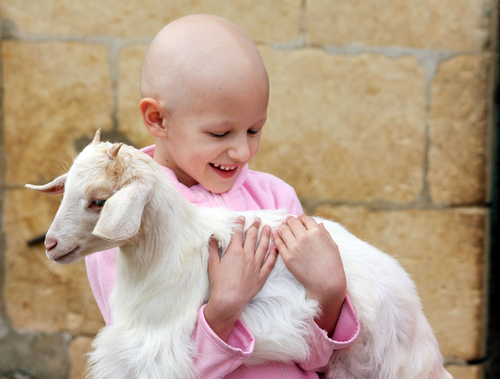Bram De Wilde is a pediatric hemato-oncologist at the University Hospital in Ghent. He is one of the keynote speakers in the afternoon session at the ‘Kankercongres’ in Ghent, October 21. Kankercongres is the first conference in Belgium that brings together all stakeholders to share and discuss the latest information on breakthroughs on prevention, diagnostics and therapies. Over 300 researchers, MDs, patients, HCPS and industry representatives have already registered!
Patients drive research forward
For Bram, combining basic research and seeing patients in the clinic is the ideal career. He juggles different tasks, like many of his colleagues, but is convinced that the direct contacts with patients fuel his eagerness to bring new solutions in the clinic ASAP. ‘That’s why I do research in the first place: to be able to translate breakthrough innovations into new diagnostics and treatments. Our team is focused on increasing the number of early clinical trials for children. We need new solutions fast. Don’t get me wrong, children with cancer have a very good survival rate: 75 – 85%. But we haven’t been able to raise that rate for the last 20 years or so. There is no cure for 25% of the kids diagnosed with cancer. And these are not statistics. They are my patients.’
‘Together with several research teams of the Cancer Research Institute Ghent (CRIG) at Ghent University we investigate why some tumors are resistant to the standard treatments and aim to develop biomarkers that help us detect the tumors in liquid biopsies such as blood. This allows us to spot treatable and non-treatable cancers fast with a non-invasive test. I am convinced this can also become an excellent tool to monitor disease progress during treatment. We are already very familiar with that approach in kids with leukemia. It would be a real game-changer to apply this to other cancers as well. Today, tissue biopsy is still standard practice but the first applications for liquid biopsies in children are already entering the clinic. There are clear indications for these new techniques, mainly in cases where conventional biopsies are too risky to be performed due to tumor location or risk of disease spreading.’
We are evolving to a more biologically educated way of treating cancer.
Tackling the 25% untreatable cancers in children
The liquid biopsies are also the start for the basic research program Bram and his colleagues are focusing on: tackling cancers that are not responding to conventional treatments. ‘Genome instability is a hallmark of cancer, and DNA replication is the most vulnerable cellular process that can lead to it. Replication stress is a unique feature of cancerous cells, providing a potential target for new cancer therapies. By knocking out or overexpressing genes involved in the processes protecting a cell against replicative stress, we can map the molecular mechanisms used by cancer cells to cope with this increase in replicative stress. We uncovered several targets for future therapies. Combining new drugs against these targets, or even including conventional chemotherapeutics, will be the way forward in pediatric oncology. We are evolving from a more empirical (let’s try this and see what happens) to a more biologically educated way of treating cancer. We do not expect to find new solutions fast, this is still very early, basic research.’
Involving the general public is a must!
‘It is crucial to involve people without a research background in what we do. As an MD, I am already connected to patients and families, but it is important that we target the public at large as well. Together, we should decide the direction and purpose of research. Doctors and researchers should reach out and get feedback. At the same time, we need to explain why we need to be careful bringing new therapies into the clinic. Talk to patients about the risks of experimental therapies. This is always hard, because from a patient’s perspective, getting access to a new treatment is crucial regardless of the risks. The impact of cancer on the everyday life of patients, even with a very positive prognosis of 75 – 80% survival rate, is not to be underestimated. A simple ‘mortgage protection’ or ’schuldsaldoverzekering’ suddenly isn’t that simple anymore….
Join Bram and 29 other speakers in Ghent, October 21! More information at www.kankercongres.be


